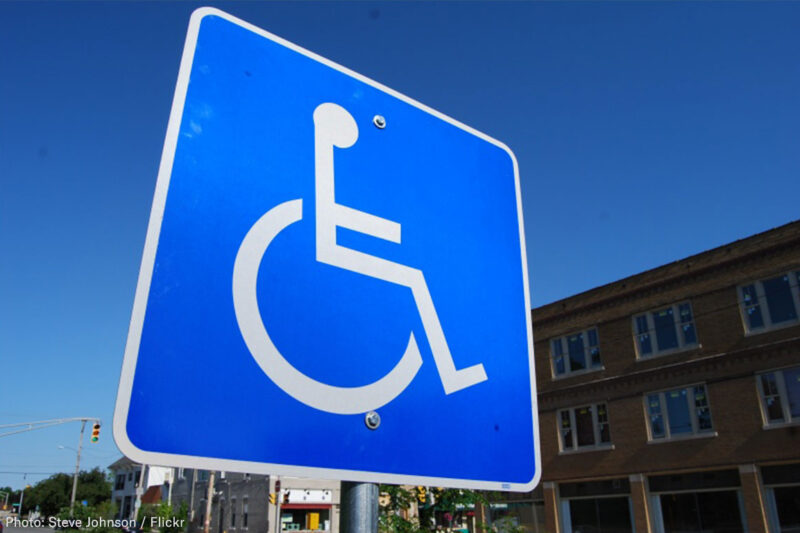
ThereŌĆÖs a moment that IŌĆÖve come to dread. I wheel up to a bar or restaurant where my friends are gathering. Then, IŌĆÖm met with a staircase ŌĆö a major barrier to my fun night out. In this situation, I have three options. I can turn around and go home. Or I can ask my friends if we can go to another place thatŌĆÖs more accessible, disrupting our plans. Or I can suffer through the spectacle of being lifted from my power chair into an inaccessible venue.
The problem is even worse when I canŌĆÖt easily get through the door of a supermarket or an office building where I have an important meeting. In those circumstances, the lack of accessibility is not simply an indignity, but a serious hardship.
Even though the (ADA) was enacted in 1990, many businesses still remain inaccessible to people like me. Still, because of the ADA, the world I experienced in elementary school was completely different from my world in college. The transformation happened because the ADA forced businesses to change their practices. Stores, restaurants, and other businesses started building ramps because the law required it. They knew that they could be held accountable if they failed to follow the law.
But now, some members of Congress are trying to fundamentally change the ADA with H.R. 620, the so-called . Under this legislation, disabled people would have to provide businesses with an indeterminate amount of time to fix the ADA violation before we can ask a court to take action to provide access. This potentially indefinite delay means that I may never be able to get the opportunity to vindicate my rights and obtain access, the main tenet of the ADA. This bill would make it almost impossible to enforce the law.
You might ask, ŌĆ£IsnŌĆÖt this necessary to protect businesses from lawsuits?ŌĆØ The answer is no. First of all, business owners have an existing obligation to make sure their businesses are accessible and government funded resources and tax incentives are available to educate owners and help them meet those obligations. They donŌĆÖt need extra notice to fix the problems that deny people like me access to public places. The 27-year-old ADA is their notice. In fact, many of the inaccessibility problems I experience ŌĆö a short step at the front entrance or a narrow aisle in a store ŌĆö can be easily fixed. Second, if they met their obligations, there wouldnŌĆÖt be any lawsuits. And, finally, letŌĆÖs remember that the ADA only authorizes the removal of the barrier and attorneyŌĆÖs fees (i.e. costs incurred because the business failed to meet its obligation). There are no other money damages.
In reality, the focus on lawsuits is a distraction. The purpose of this bill is not really about litigation. ItŌĆÖs about fatally wounding the ADA. H.R. 620 would eliminate the incentive for a business to proactively comply with the ADA, and it puts the onus on every person with a disability to fight for the access that has been required under federal law for a generation.
Under H.R. 620, inaccessible businesses would have little reason to accommodate people like me. At worst, theyŌĆÖll get a letter and have an indefinite amount of time to take minimum steps to show that they are making ŌĆ£substantial progressŌĆØ to fix the problem. In the meantime, people with disabilities will continue to face needless barriers to our lives and livelihoods and the change that began in 1990 will never be fully achieved.
Matan Koch is the CEO of and a prominent volunteer leader in the Boston area. He served as one of President ObamaŌĆÖs appointees to the National Council on Disability.


